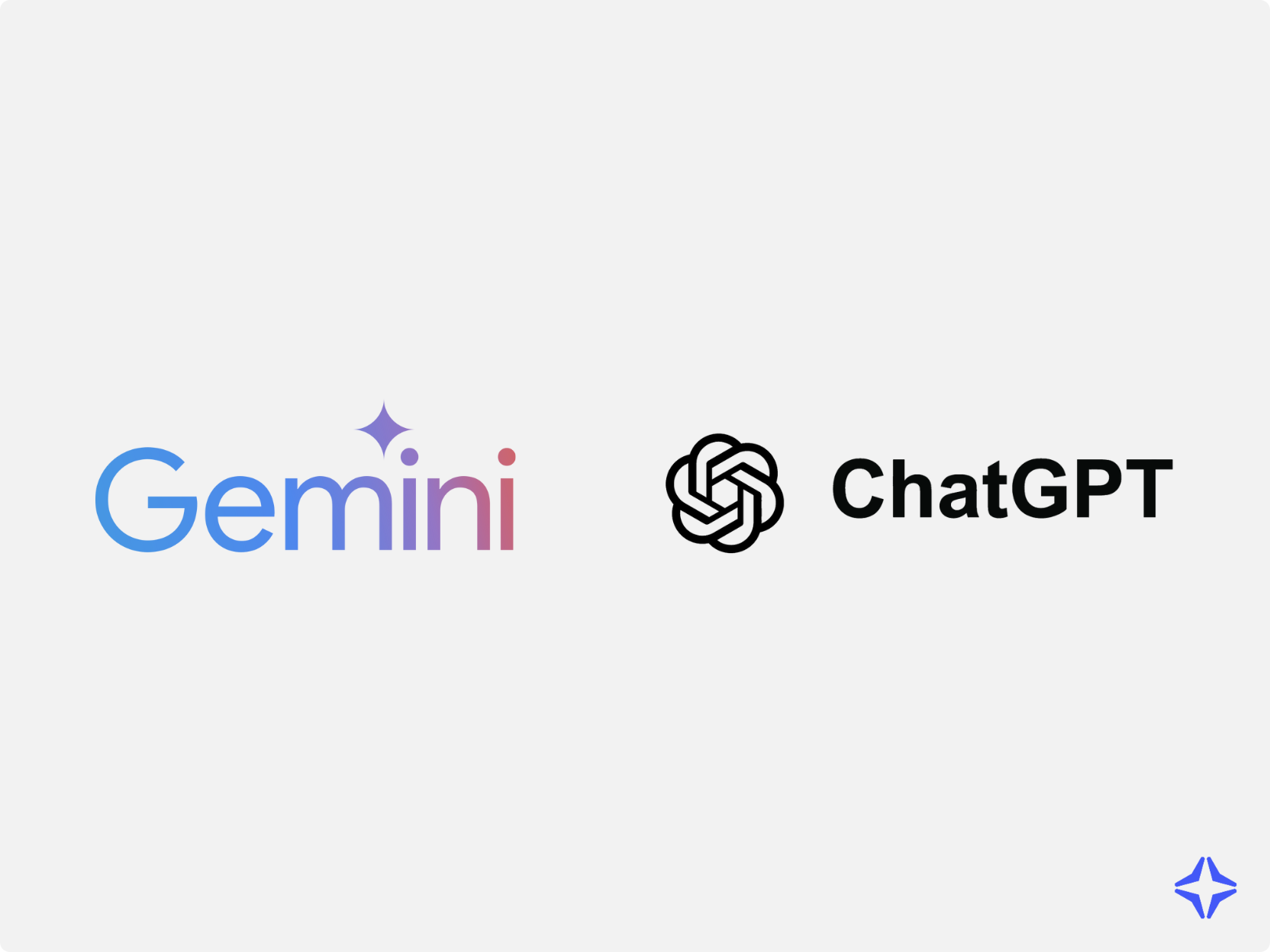Unleashing the power of AI in online visibility is no longer a sci-fi fantasy; it's a game-changing reality. Welcome to Generative Engine Optimization (GEO), where cutting-edge AI-generated content revolutionizes the way brands boost their search engine ranking. This isn't a trend on the horizon, it's transforming the digital marketing landscape as we speak.
Understanding GEO necessitates growing familiar with its journey from traditional SEO strategies to its deep integration of Artificial Intelligence. AI in modern search engines not only powers search results but also crafts content, ensuring relevance and quality. For businesses aiming to maximize organic visibility, understanding GEO becomes crucial.
This article unpacks GEO's key components, benefits, and challenges, arming you with strategies to balance human and AI efforts. Dive into the transformative world of GEO, where establishing brand authority and responding to evolving user behaviors isn't optional but essential.

Understanding the Evolution from SEO to GEO
Search engine optimization (SEO) has long been the cornerstone of digital marketing, focusing on strategies to improve website visibility in search results. However, the field is witnessing a shift towards Generative Engine Optimization (GEO), driven by advancements in generative AI. This evolution signifies a move from optimizing for traditional search engines to preparing content for AI-driven search engines, which are capable of generating direct answers and comprehensive responses to user queries.
From Traditional SEO to Generative AI
Traditional SEO techniques involve keyword optimization, backlink strategies, and content updates to enhance rankings in search results. In contrast, Generative AI-driven methods prioritize creating high-quality content that aligns with AI-generated responses and anticipates user needs through direct interactions. AI-driven search results leverage advanced algorithms to understand user intent, allowing businesses to target an intended audience with precision. By adopting GEO strategies, companies can enhance content visibility and effectively respond to evolving search behaviors and search engine algorithms.
The Role of AI in Modern Search Engines
Modern search engines increasingly rely on sophisticated AI technologies, such as large language models and natural language processing, to deliver accurate and relevant AI-generated results. These technologies enable platforms to process search queries more contextually and provide responses that are not only authoritative but also rich in valuable insights. As AI-driven platforms continue to reshape the digital landscape, businesses need to adapt SEO strategies to stay ahead in the search rankings and address the dynamic needs of users seeking informed and satisfying experiences online.
Key Components of GEO
Generative Engine Optimization (GEO) represents a paradigm shift in search engine optimization, focusing on how content interacts with AI-driven search engines rather than traditional search mechanics. At its core, GEO leverages advancements in Generative AI and natural language processing to enhance content visibility and relevance across digital platforms. This approach prioritizes crafting content that caters to generative engines, which provide direct answers and comprehensive responses to user queries. Understanding GEO is crucial as AI-driven platforms are increasingly shaping the search landscape, impacting everything from search behavior to search rankings.
Emphasis on AI-Generated Content
AI-generated content is at the heart of GEO, utilizing powerful language models to create high-quality and relevant materials efficiently. Generative AI tools streamline content creation, delivering direct answers and comprehensive responses that are appealing to AI-driven search engines. For businesses and SEO professionals, this approach can significantly bolster online presence and improve search query outcomes. Emphasizing AI-generated content helps in aligning SEO strategies with evolving user behaviors, ultimately enhancing the user experience and reaching the intended audience more effectively.
Ensuring Content Relevance and Quality
Maintaining high standards in AI-generated content is essential for successful GEO strategies. It's crucial to ensure that content is tailored to user queries and provides valuable insights. Start by leveraging authoritative sources and incorporating SEO keywords seamlessly into content. Regularly evaluate AI-generated results for accuracy and relevance, focusing on delivering comprehensive responses. This approach enhances content quality and establishes trust with AI-driven search engines, positively affecting search rankings.
Technical Enhancements for AI Accessibility
To make content readily discoverable by generative search engines, certain technical adjustments are necessary. Optimizing metadata with relevant keywords helps AI-driven platforms understand content context better. Structuring content with clear headings and concise sentences enhances its readability for AI algorithms. Additionally, implementing schema markup ensures that AI-driven search engines can efficiently index and display content. These technical enhancements not only improve content accessibility but also play a significant role in enhancing overall content visibility in the digital landscape.
Strategies for Effective GEO
Generative Engine Optimization (GEO) is transforming the digital landscape by enhancing search engine optimization strategies through the use of generative AI. Unlike traditional search engines, GEO leverages AI-driven platforms to provide comprehensive and valuable insights crafted by advanced language models. As the next step in SEO evolution, adopting GEO can significantly boost content visibility and authority. Implementing effective GEO is key to stay competitive in this new search landscape.
Conducting Generative AI Research
Research tailored for AI-driven search engines requires a nuanced approach. Start by studying existing AI-driven search behaviors and how they differ from traditional search volumes. Identify keywords that align with AI-generated results and direct answers typical of generative engines. Tools that offer natural language processing capabilities can help pinpoint trending topics that match AI-driven search queries. Understanding user intent is crucial, as generative engines prioritize comprehensive responses that match nuanced queries.
Pay close attention to the content strategies employed by authoritative sources in your niche. Analyze how they incorporate AI-generated elements to offer valuable insights. Regularly reviewing search rankings from generative AI platforms can reveal successful content structures and identify areas for improvement. The objective is to stay informed and iterative, adapting to shifts as AI integrates deeper into search behaviors.
Structuring Content for User Intent
To optimize content for GEO, it’s essential to align it with user intent as interpreted by AI-driven search engines. Creatively structuring content to produce high-quality responses to user queries will cement your authority in the digital landscape. Start by examining prevalent user queries in your field, particularly those that AI-driven search engines favor.
Compose content that anticipates and answers these queries directly, ensuring that it is informative and coherent. Organize information within your articles to suit the evolving AI models, providing clarity and depth. This methodology will attract AI-generated traffic as engines seek optimal content to deliver comprehensive responses. By addressing user expectations with precision, you position yourself as a vital resource, tailored for AI-powered interface users.
Balancing Human and AI-Generated Inputs
Blending human creative insight with AI-generated content is a sophisticated yet vital SEO strategy. Human creativity ensures content is engaging, authentic, and tailored to the intended audience's tone and style. To maximize this synergy, begin by drafting outlines that direct the AI towards specific topics or themes, reflecting user interests.
Allow AI-driven platforms to augment these drafts with data-rich, comprehensive snippets, enhancing the response quality. Human oversight is needed to validate AI-generated insights, ensuring accuracy and contextual relevance. This balanced approach not only enhances content with diverse input but also aligns perfectly with AI-driven search results, enriching the user experience. Employing effective checks and collaborative adjustments will ensure content remains authoritative and compelling across evolving digital frameworks.
Benefits of Implementing GEO
Generative Engine Optimization (GEO) is rapidly transforming how businesses approach SEO in the digital landscape. This emerging strategy utilizes AI-driven technologies to optimize for search engines that provide direct and comprehensive responses to user queries. By adopting GEO, businesses can enhance their content visibility, increase organic traffic, and stay ahead in an ever-evolving search environment.
Adapting to Evolving User Search Behavior
User search behaviors are shifting towards a preference for immediate, direct answers, often provided by AI-driven search engines. Traditional search methods are giving way to these more sophisticated systems, which leverage natural language processing to offer responses that are more aligned with user intent. By implementing GEO, businesses can ensure they are visible across generative search platforms, adapting their strategies to meet new user expectations and behaviors, thereby maintaining relevance in this changed search landscape.
Increasing Organic Visibility through AI
GEO empowers businesses to improve their rankings in AI-driven search results by optimizing content for generative engines. With the increasing reliance on AI-generated responses, businesses that integrate GEO can see enhanced visibility and attract more organic traffic. By producing high-quality, authoritative content that aligns with AI-driven platforms, companies can better position themselves to capture the attention of their intended audience, leading to increased engagement and improved search rankings.
Establishing Brand Authority in the AI Era
Incorporating GEO into your SEO strategies positions your brand as an authoritative source in your industry. As AI-driven search becomes the norm, businesses that effectively leverage generative AI can differentiate themselves through high-quality content that resonates with both users and AI systems. By adopting GEO, brands not only improve their search engine optimization but also build credibility and trust, capitalizing on AI's potential to establish and reinforce their industry leadership.
Differences Between GEO and Traditional SEO
Generative Engine Optimization (GEO) represents a significant evolution in the field of search engine optimization. Unlike traditional SEO, which relies heavily on keyword optimization and backlink building, GEO focuses on harnessing AI-driven search engines and generative engines to produce AI-generated responses. As the digital landscape shifts towards these advanced platforms, understanding the distinction between these approaches is crucial for maintaining or enhancing content visibility and improving search rankings. This transition is not just an upgrade — it's a paradigm shift in how SEO is conceptualized and executed.
Focus on AI Platforms like ChatGPT and Gemini
AI platforms like ChatGPT and Gemini are at the forefront of this transformation. These tools utilize cutting-edge natural language processing and sophisticated language models to deliver comprehensive responses that directly address user queries. Unlike traditional search engines that rely on static search queries, generative engines provide AI-generated results tailored to the user's specific intent. For content creators, this means the focus shifts from merely optimizing for search queries to creating high-quality content that can be interpreted and generated by these AI platforms.

Nuanced Understanding of User Intent
GEO demands a deeper grasp of user intent, moving beyond basic keyword targeting to interpret complex patterns in user behaviors. While traditional SEO considers search volume and click-through rates, GEO integrates insights from AI-driven platforms to predict and cater to user needs more accurately. This approach prioritizes providing valuable insights through AI-generated responses by understanding the context and intent behind user interactions. By doing so, content creators can craft responses that are more aligned with the needs of the intended audience, thereby improving user experience.
Technical vs. Content-Centric Optimizations
Traditional SEO often involves technical optimizations, such as enhancing meta tags, improving site speed, and ensuring mobile-friendliness. While these aspects remain important, GEO shifts the emphasis towards content-centric strategies that align with AI-driven search results. The role of high-quality content becomes paramount, as generative engines prioritize robust, authoritative sources that deliver direct answers to complex questions. This reorientation requires a keen understanding of how AI-generated results process and present information, thus changing the landscape of what is deemed effective in SEO strategies. Content must be crafted with a balance of technical precision and an in-depth, user-focused approach.
Challenges and Considerations in GEO
Generative Engine Optimization (GEO) reshapes how we approach search engine optimization by leveraging AI-driven search engines and generative AI technology. As businesses dive into GEO, they face specific challenges and considerations that can significantly impact content visibility and search rankings. Understanding these can help navigate the shift from traditional search engines to generative engines and enhance search behavior strategies.
Navigating AI Biases in Content Creation
AI-driven search and content creation strive for efficiency but can inadvertently introduce biases. These biases stem from language models that learn from large datasets, which might reflect societal prejudices. Businesses should ensure AI-generated responses align with their intended audience by critically evaluating AI-produced outputs. Reviews should focus on comprehensiveness and fairness, addressing any bias that may affect user experience or misrepresent authoritative sources.
Maintaining Clarity with AI-Produced Content
AI-generated content, while innovative, sometimes lacks coherence, which can confuse users or dilute brand messages. To maintain clarity, businesses should integrate high-quality content checks within their marketing strategies. Ensure that AI-generated results are reviewed for logical flow and direct answers to user queries. This helps in delivering concise, valuable insights while preserving the integrity of the brand’s voice and enhancing user engagement.
Keeping Up with Rapid Technological Changes
The pace of advancements in AI and generative technology demands proactive engagement from SEO specialists. Staying current with trends that impact digital landscapes and SEO strategies is vital. Subscribe to industry publications, participate in webinars, and engage in professional networks to track changes in AI-driven platforms and the search landscape. By doing so, businesses can adapt effectively, ensuring they meet evolving search behaviors and maintain competitive edge in SEO.
Future Trends in GEO
Generative Engine Optimization (GEO) is transforming search engine optimization by utilizing AI-driven platforms to generate content and provide direct answers. As the digital landscape evolves, businesses must keep pace with these advancements to maintain a competitive edge. Future trends in GEO indicate a shift towards more personalized and comprehensive responses to user queries, facilitated by advanced language models and natural language processing technologies.
The Impact of Advanced AI Algorithms
Advanced AI algorithms are revolutionizing how search engines operate by delivering AI-generated results that are not only high-quality but also cater specifically to user needs. These algorithms can analyze search behaviors and query intent, offering authoritative sources and improving content visibility. As AI technologies continue to evolve, SEO strategies must adapt to leverage these tools for higher search rankings and better user engagement.
Integration of VOICE and AI in Searches
Voice search, combined with generative AI, is altering how users interact with search engines. This integration prioritizes conversational queries and necessitates content that anticipates and answers spoken inquiries effectively. To prepare for voice-integrated GEO, businesses should optimize for natural language and conversational keywords, ensuring that their content aligns with user intent and is readily accessible to voice search technologies.
Predictive Analytics and User Experienceataires
Predictive analytics powered by generative AI is set to enhance personalized user experiences. By analyzing user data, these AI-driven platforms can anticipate user needs and tailor content accordingly. Businesses can benefit by adopting methods that integrate predictive insights into their content strategies, fostering a more engaging and intuitive user experience that aligns with evolving search landscapes.
Learning and Mastering GEO
Generative Engine Optimization (GEO) is reshaping the digital landscape by incorporating AI-driven technologies into search engine optimization. Unlike traditional search engines, generative engines leverage AI to provide direct answers and comprehensive responses tailored to user queries. Mastering GEO is increasingly vital for anyone looking to enhance their search rankings and improve content visibility. Emphasizing high-quality content and understanding AI-driven search behaviors can lead to valuable insights and drive growth for businesses and careers alike.
To effectively master GEO, it's crucial to stay informed about emerging SEO strategies, trends, and technologies. Begin by studying language models and natural language processing, as they are central to AI-driven search platforms. Consider dedicating time to practical experiments, analyzing AI-generated responses, and comparing them to traditional search results. By adopting a proactive approach to learning, you can position yourself as an authoritative source in this evolving field.
Essential Tools and Resources for GEO
Exploring essential tools and resources is key to mastering Generative Engine Optimization and advancing in the SEO industry. With AI-driven search engines continually transforming the search landscape, these tools can help you stay ahead of the curve. Focused on delivering AI-generated results, using the right resources enables you to craft more effective GEO strategies for enhanced user experience and search outcomes.
Start by harnessing AI-driven platforms such as GPT-based applications to practice generating AI-powered content. These platforms provide practical insights into crafting high-quality responses to user queries. Additionally, SEO analytics tools can help monitor search rankings and traditional search volume, offering a comprehensive view of search behavior shifts. Delve into online courses focused on natural language processing and AI to deepen your understanding of the concepts driving GEO forward.
Lastly, engage with webinars and e-books authored by industry experts to remain abreast of the latest GEO developments. Becoming familiar with these platforms and resources ensures that you optimize your learnings and grow your expertise in GEO. The right mix of practical and educational resources will empower you to navigate this new era in search engine optimization effectively.
Frequently Asked Questions About Generative Engine Optimization (GEO)
What is Generative Engine Optimization (GEO) and how does it differ from conventional search engines?
Generative Engine Optimization (GEO) is an evolution of traditional SEO that focuses on optimizing digital content for AI-powered search engines. Unlike conventional search engines that primarily return a list of links, GEO leverages artificial intelligence to create and optimize content that aligns with how AI-driven generative search engines produce comprehensive answers to user queries. This shift represents a fundamental change in search strategy and requires a deeper understanding of how generative models process and interpret information in the digital space.
How does GEO differ from traditional SEO in terms of keyword strategy?
While traditional SEO relies heavily on keyword density, keyword stuffing, and long-tail keywords for optimization, GEO emphasizes creating high-quality, relevant content that AI platforms can interpret effectively. GEO requires a more sophisticated approach to semantic keywords and natural language queries, focusing on conversational phrases rather than isolated keywords. This content-centric strategy aims to provide relevant responses to user inquiries rather than simply targeting search algorithms.
Which AI-powered search engines are driving the shift toward GEO?
Platforms implementing the Generative Experience, such as ChatGPT and Gemini, are transforming the search landscape. These AI-driven generative search engines use advanced perception intelligence and natural language processing to deliver AI-generated search results that directly address user queries. This evolution in types of search engines is changing how the search community approaches content optimization and distribution.
Why is GEO becoming essential for online visibility and reaching a wider audience?
As user search behaviors evolve toward expecting AI-generated answers rather than sifting through search results, businesses need effective strategies to maintain visibility across platforms. Implementing GEO helps companies increase organic search traffic, lower bounce rates, improve conversion rates, and establish brand authority in an AI-driven world. Organizations without a strong SEO foundation adapted for the AI era risk losing visibility to their target audience and broader audience segments.
What key strategies should digital strategies include for effective GEO implementation?
Effective GEO strategies include: creating high-quality, relevant content with varied multi-modal formats, implementing AI-friendly structured data through additional schema types (including Testimonial schemas), ensuring content freshness with regular engagement, optimizing for mobile search, structuring content with concise paragraphs for better content processing, and balancing human creativity with AI-generated content structures. These approaches establish a well-performing site that appeals to both active users and AI systems.
How can businesses adapt to AI-enhanced search to improve organic search traffic?
Businesses can adapt by optimizing for AI-powered search through developing a solid foundation that includes fluency optimization, hyper-personalization of content, and incorporating data-driven insights. This requires understanding how AI-generated search responses differ from conventional search engines' results. Organizations should focus on creating interactive content and varied content types that provide comprehensive answers while maintaining reading time considerations.
What challenges might businesses face when implementing GEO in the competitive landscape?
Key challenges include navigating ethical practices in content creation, maintaining consistent brand identity across AI-generated content, ensuring strong security practices for secure sites, optimizing loading times and server response times for better user experience, and keeping pace with the evolving nature of search algorithms. Addressing these challenges requires proactive monitoring and advanced strategies to maintain relevance in search results.
What tools and resources are essential for newsletter search marketers mastering GEO?
Essential tools for editorial staff and marketers include AI applications for generating content, analytics platforms for tracking source visibility and referral traffic, and resources focused on understanding AI-friendly structured data and schema application. Industry experts like Christina Adameon recommend continuous education through workshops from institutions like IIT Delhi to stay current with digital strategies that enhance visibility across platforms.
How will mobile optimization and visual content visibility impact GEO strategies?
Mobile search optimization is increasingly crucial as AI-enhanced search becomes predominant on mobile devices. Visual content visibility requires specific optimization approaches for AI systems to properly index and interpret images and videos. Organizations should ensure their impactful formats are optimized for AI processing while maintaining fast loading times for better user experience and stronger relevance in search results.
How can predictive analytics enhance GEO effectiveness across audience segments?
Predictive analytics powered by generative AI can analyze user data to anticipate needs and deliver hyper-personalization. Businesses integrating these data-driven insights into their content strategies can create more engaging experiences aligned with key queries from specific audience segments. This approach helps optimize for relevant searches and improves the accuracy of AI-generated answers.
How should businesses balance user-generated content with professionally created content?
The optimal approach involves blending authentic user interactions with professional content creation. User-generated content builds public trust and provides fresh perspectives, while professionally developed content ensures accuracy and alignment with generative engine responses. Human oversight from editorial staff remains essential to validate content for accuracy and maintain credible sources for reference.
What technical considerations are necessary for improving visibility in AI-powered search?
Technical adjustments include optimizing for natural language queries rather than keyword density, implementing comprehensive schema types for AI-friendly structured data, ensuring mobile optimization with fast server response times, incorporating relevant phrases and semantic keywords throughout the content, and building relevant links that establish authority. These approaches help ensure that content appears in AI-generated search results and maintains relevance across different types of search engines.
How can organizations build brand authority in an AI-driven world?
Building brand authority requires establishing trust through collaborations with recognized entities, maintaining a consistent brand identity across all content, demonstrating deep understanding of topics through comprehensive answers to user inquiries, ensuring strong security practices, and fostering authentic user interactions. Organizations that successfully project expertise and reliability will gain preferential treatment in generative engine responses, improving their position in the competitive landscape of the digital space.





